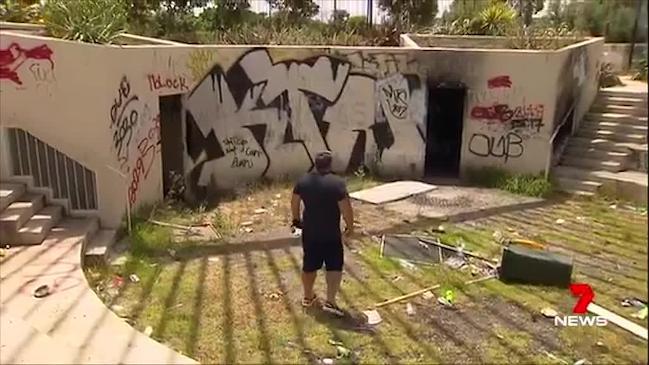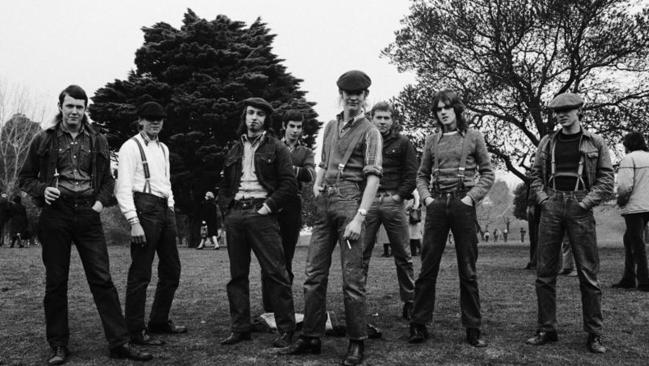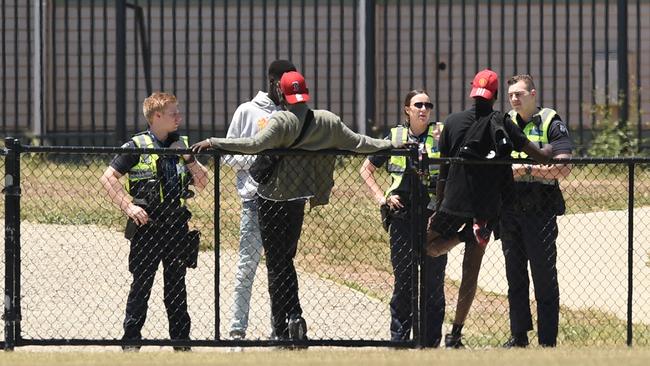Theo Theophanous: Melbourne gang culture is nothing new
THE current gangs crisis isn’t new and calls for authorities to “get tough on crime” are misreading the situation, writes Theo Theophanous.

Opinion
Don't miss out on the headlines from Opinion. Followed categories will be added to My News.
YOUTH gangs are not new in Melbourne. They have always been a feature of especially working-class areas. Before we rush to condemn the so-called Sudanese or African gangs, it is worth reflecting on some home-grown Aussie gangs of the past.
I grew up in Broadmeadows and in the late ’60s, groups of youths called Sharpies roamed the streets.
They were characterised by a skinhead haircut at the front and a kind of glam rocker style at the back, often with tattoos. They were mainly British or Anglo-Aussie working-class boys who hung out together and with girls called “brush” who wore tight miniskirts and high wedged heels.
HOW AFRICAN YOUTHS ARE LEAVING TARNEIT RESIDENTS FEARFUL AND FRUSTRATED
ANDREWS GOVERNMENT LEADERS MISSING IN ACTION DURING AFRICAN GANGS CRISIS

In sociological terms, members of those gangs saw themselves as part of an “in-group” that provided them with a source of meaning and differentiation from “out-groups” which were essentially the rest of society.
They targeted those of us who sported Beatle-style haircuts and clothing that they referred to as pansies or Mods. If you were an ethnic (at that time, referred to as wogs), you were doubly targeted.
KATIE BICE: COPS’ RESPONSE TO YOUTH GANGS CRISIS INADEQUATE
TIM SMITH: GANG CRISIS POINTS TO A RANGE OF FAILURES
RITA PANAHI: A TRIP TO TARNEIT IS A MUST FOR HEAD-IN-THE-SAND LEFTIES
I can remember the terrifying feeling of walking down the street and seeing a group of Sharpies approaching. Having been bashed up several times, once quite badly, I changed my behaviour. I avoided areas where they frequented or being out alone at night.
The Sharpie gangs have been romanticised over the years but the truth is that alongside the gang activity and their favourite sport of bashing mods and wogs, they were often involved in other criminal activity.
Sadly, the cops were nowhere to be found — the level of policing in places like Broadmeadows was virtually non-existent then.

The Sharpies were subsequently replaced by an emerging punk culture with its own characteristic brand of fringe norms and behaviour.
Chane Chane, a remnant music stalwart and former Sharpie, recently romanticised the Sharpies gangs with the words: “We were all between 14 and 18. The world was wide open. We’d been told to sit in the corner and shut up for years, and this time we were out and no one was telling us to shut up.”
These words could just as easily have been uttered by some Sudanese youth today, reflecting on the repressive circumstances from whence they came and the new circumstances they faced in a new land.
For Sharpies, the sense of belonging to an “in-group” often manifested itself in violence towards outsiders in order to prove your allegiance and loyalty to the group.
For today’s gangs, Sudanese or otherwise, the dynamics are similar.
The Sudanese gang issue, like the Sharpie gangs and countless other gangs we have had over the years, should be seen first and foremost as a sociological issue and not as a political or even predominantly a policing issue.
Sociologists will tell you that driving the “in-group” dynamic is a sense of belonging in the face of the feeling that you are an outsider and unwanted by the mainstream.
It is counter-productive for our leaders to reinforce the notion that these young African people are not wanted by threatening to deport them to places of terror where their lives are at risk. In the short-term, that may push some of their behaviour underground but it will also drive them deeper into the arms of their gangs.
The threats will also reinforce the dynamic of seeking to obtain meaning, differentiation and protection by adopting group symbols, through rebelliousness and criminal activity as acts of defiance.

To integrate our new citizens into the Australian ethos, we need programs that build trust and redirect the powerful feelings of belonging that exist within the “in-group” away from being expressed in destructive, anti-social behaviour.
This is a much harder and more complex process than the knee-jerk reaction of “send them back to where they came from”. It involves understanding, mentoring, sensitive policing and providing facilities where they can hang out, play sport or engage with people from other communities. Mostly, it involves accepting our own responsibility, having brought them to our country, to help break the cycle of unemployment in which two out of three of these young people are trapped.
The solution is not to be found in labelling or branding the problem as an ethnic or Sudanese problem and pretending that we never had or do not have Aussie gangs displaying similar behaviour. It is morally unsustainable to treat them as an anti-social ethnic “out-group” and ourselves as members of the morally superior legitimate “in-group”.
Scoring political points is not helping. Nor is the “let’s get tough on crime” approach to which both political parties at the state level will invariably be drawn in an election year.
Malcolm Turnbull and Peter Dutton’s intervention is the same kind of mentality that has left hundreds of legitimate asylum seekers languishing in foreign jails that we set up to avoid our international and moral responsibilities.
As Australians, as Victorians, I think we can do be better than this for our young Sudanese and African youth.
Our politicians should stop thinking that we are incapable of understanding such complex problems and that our vote is somehow a public auction on how tough they are in supporting a paradigm that brands all such young people as criminals to be deported or jailed.
Theo Theophanous is a former state government minister and commentator


